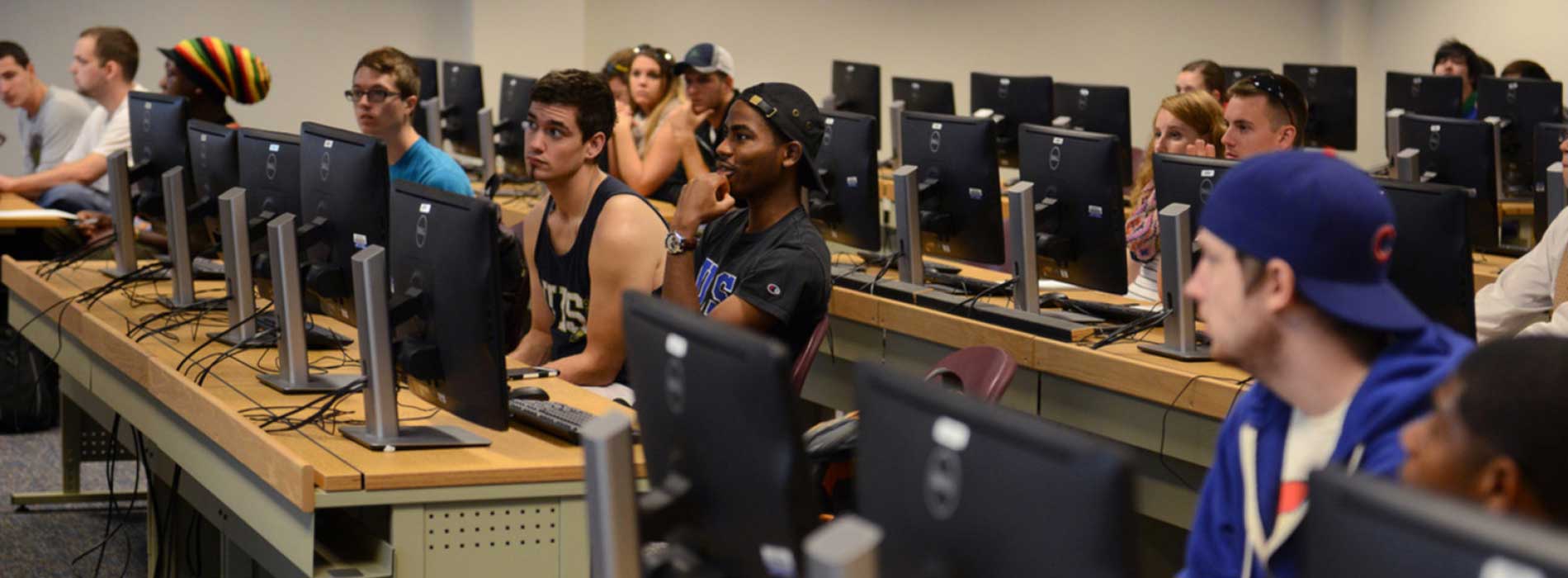Fundamental Principles
Please review the UIS Academic Integrity Policy.
As a part of the University, the Computer Science Department upholds and enforces the UIS Academic Integrity Policy on cheating and plagiarism. The Computer Science Department’s policy supports and extends the UIS policy.
Working Guidelines
In addition to the faculty and student guidelines set forth in the UIS policy, a faculty member is free to set the ground rules for the honest completion of assignments within his or her course; the rules may vary from assignment to assignment. In particular, the extent to which group work is permissible depends solely on the faculty member. Within the ground rules, the honesty of a student's behavior can usually be explored with the help of the two following guidelines.
- Plagiarism is suspected if an assignment calling for independent design and implementation results in two or more solutions that differ only by simple mechanical transformations. An example of a simple mechanical transformation would be for student S. to take student T.’s code, globally change the variable names and submit this code as the work of student S.
- Cheating is suspected if an assignment calling for independent design and implementation results in a solution that the student cannot explain to the faculty member in terms of either general method or specific techniques.
Examples of Cheating and Not Cheating
It is impossible to attempt to define completely what constitutes cheating or not cheating. In addition to the examples of cheating stipulated in the UIS policy, the following cases also should almost always be judged to be at their appropriate extreme.
Cheating
- Submitting someone else's work, or a modification of that work, as your own, with or without that person's knowledge, regardless of the circumstances under which it was obtained, copied, or modified.
- Allowing someone else to submit your work, or a modification of your work, as his or her own.
- Solving, as a group, a problem or problems for which group work is prohibited, and submitting multiple copies, each copy as the work of a separate individual.
- Using someone else's work, including segments of permitted program libraries, without proper attribution.
- Stealing an examination or solution from the faculty member or from the faculty member's computer account.
- Purchasing code from another student or a vendor on the Internet and submitting this code as your own (e.g. Chegg, CourseHero, etc.).
Not Cheating
- Submitting work done alone or with the help of the faculty member (or his assistants, when applicable).
- Solving as a group a problem in which group work is permitted, and submitting one copy as group work, identifying each member of the group.
- Receiving help on the use of a feature of the operating system or system programs such as compilers, debuggers, etc.
- Receiving help on debugging a programming homework/project from a fellow student given that the help is limited to: interpreting error messages from system programs or help overcoming small programming problems (e.g., illegal use of memory, unexpected infinite loops, uninitialized variables, etc.).
- Discussing the intention, as opposed to the solution method, of a problem for which individual work is required.
As stated above, it is impossible to provide an exhaustive list of what does and does not constitute cheating. It should be stressed that, in cases of uncertainty, it is the student's responsibility to ascertain from the faculty member whether an activity is considered cheating or not cheating.
Disciplinary Procedures
The Computer Science Department does not tolerate cheating. When cheating is suspected, the faculty member will take reasonable action to establish whether it actually occurred. If cheating has occurred, the faculty member will apply the appropriate disciplinary action.
A more comprehensive discussion of who has the primary responsibility for bringing a charge of academic dishonestly is cited in the UIS policy.
Informal Resolution
The following actions may be taken by the faculty member if it has been established that an incidence of cheating has occurred.
The Provost’s Office may be contacted to determine if the student had previously been caught cheating. If there has been a previous occurrence, then the current incident must be referred to the Academic Integrity Council for a review by a Hearing Panel.
If there were no previous instances of cheating on record, the faculty member will notify the student, in writing, of the incident and the punitive action to be taken. The student has ten business days to respond to this notice. If the student responds within ten days, then the faculty member, the department chair and student will discuss the charge. If the faculty member and the department chair feel that this was not an incidence of cheating, then the matter is over.
If, after the discussion, the faculty member and the department chair feel that cheating has occurred, the punitive action outlined in the written notification to the student will be implemented.
If the student does not admit responsibility or agree with the punitive action, the student, the faculty member or the department chair may request that the case be sent to the Academic Integrity Council.
If both the student, the faculty member and the department chair agree to the student's responsibility for the violation and to the sanction to be imposed, the faculty member or department chair must submit an “Informal Resolution Form” to the Academic Integrity Council and send copies of the report to the student and the Office of the Provost as the office of record.
If the student does not respond, then case will be referred to the Council for review by a Hearing Panel. The punitive actions permitted are cited in the UIS policy (Section V-2-B).
CPT and OPT Policy
The Computer Science Department provides both Curricular Practical Training (CPT) and Optional Practical Training (OPT) for international student's. CSC 505 Graduate Summer Internship is a CPT eligible course. For further information regarding CPT and OPT, please direct all inquiries to csc@uis.edu.
